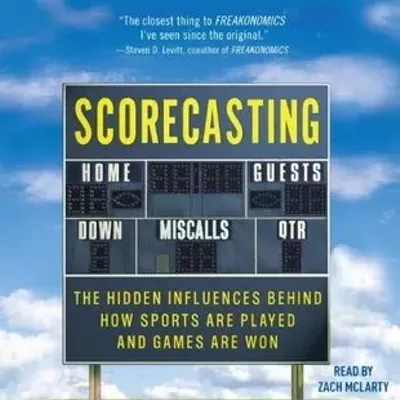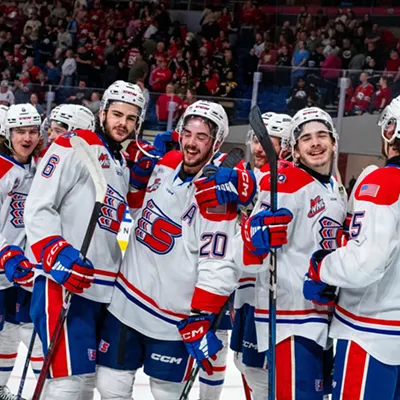Wednesday, February 9, 2011
Five Friday Night Lights tricks for making great TV
It was a miracle worthy of final-seconds-on-the-clock sports movie cliché. Friday NightLights, a brilliant but low-rated show about a poor high school-football-obsessed Texas town, looked certain for cancellation. Then came the comeback. Out of nowhere, Direct TV signed a deal with NBC, guaranteeing not one, but two, extra seasons of Friday Night Lights.
Sometimes, fans of great TV get crazy lucky.
Tonight, on Direct TV's Channel 101, Friday Night Lights ends its fifth and final season. It’s likely no TV show of its style and quality will ever last that long on network TV again. For writers of future television shows, it leaves a useful legacy. Here are five tricks Friday Night Lights used that made for a better show.
1) Ch-Ch-Ch-Ch-Changes: The courage to make character development a struggle.
Many shows don’t really have character development at all. Horatio Caine is the same yesterday, today, and forever. For other shows, character development is a permanent march in one direction: The poncy British wuss becomes a bitter, hardened badass. The ruthless villain’s heart gradually grows three-fold. The first mate of a starship sums up the courage to finally grow a beard.
Friday Night Lights may have captured realistic personal development better than any other TV show. You see that sort of halting, two-steps-forward-one-or-three-steps-back change in nearly every character ofFriday Night Lights. The character Tim Riggins, Dillon’s football star and perpetual screw-up, is the most obvious example. Tim struggles, valiantly and sporadically, to be a better person. But he regularly sinks back into his old habits of skipping class, getting drunk, breaking the law, or becoming apathetic. Over time, in sum, he’s made progress, but it’s never easy or clean or permanent. Just like with real people. —-
2) Benched: The freedom to dump plotlines
The 2007-2008 writers strike isn’t something to joke about. We lost a lot of good shows in that strike, the grizzled critic remembers, a far off look in his eyes. But the strike, for all its tragedy, had a number of silver linings: It gave us Conan O’Brien’s beard, Dr. Horrible’s Sing-Along Blog, and – best of all – killed Friday Night Lights Season Two. The second season ofFriday Night Lights might as well have just been 15 hours of studio executive notes to “sex it up.” Season Two dove deep into O.C. style melodrama — exactly the opposite of what made Friday Night Lights unique.
Now, they could have done what most other shows do when trying to come back from creative mistakes — find ways to quickly explain them away, remove the worst characters, bring the plot lines to quick and awkward conclusions. But all those would have simply dragged down the great Season Three.
There were massive plot holes in the sudden elimination of Season Two plot lines. But while eyebrows were raised and a few jokes were cracked, nobody really complained. Quality, as always, is the ultimate defense against nitpicks. Too many times on television, defending against nitpicks — or even plot coherence — comes before quality.
3) Clear eyes: The magic of the close-closeup
Some TV shows shoot their characters from the waist up, from a few feet away. But, so often, Friday Night Lights jams the camera in the actors' faces. You can see their lips sorta twitch, their brows barely furrow, their bleary eyes stare off into the distance. It’s the sort of subtle acting that a theater audience, sitting far away, would never notice. The realistic way that Coach Taylor rubs his nose when he’s stressed or frustrated only works so well because we can see the exhaustion in his eyes.
It’s so personal, it’s so intimate, it’s so real, that I believe it actually makes actors better by practicing it. They become more nuanced. They understand emotional beats better.
Even Taylor Kitsch, as Tim Riggins, went from a one-note bad-boy to displaying a full range of aspects in his cycle of redemption and self-destruction. The acting is amazing. But part of that’s the close-up, shaky-camera format.
4) Full hearts: The power of inarticulate speech
The ramble is the great unexplored speech pattern. We all do it, we all hear it, but we rarely see it on television. Instead, most TV actors talk like TV writers — rather, they talk like TV writers would talk if they had a chance to pore over their dialogue, look up references, and rewrite it before speaking it. The West Wing, Gilmore Girls, Mad Men — these scripts read how we wished we talked. But the actors on Friday Nights Lights, partly because of the improv-heavy directing style of Jason Katims, talk real, all raw and clumsy. Star quarterback Matt Saracen stammers. He’s inarticulate in ashy-high-school-kid way, not in a stereotypical lunk-headed jock way.
Coach Taylor’s pre-game pep-talks never felt like speech-written tours deforce. There have been countless more soaring locker room oratories in movies and television. But they were exactly the kinds of speeches I heard over four years of high school cross-country, the sorts of speeches that inspire not because they're polished, but because they're a little unpolished. As cliché as it sounds, the speeches and dialogue feel like they come from the character’s heart, not his pocket thesaurus.
5) Can’t lose: The need to “flip scripts”
The line of TV criticism I best remember — more than four years later — comes not from a big-name TV critic but from a woman named “Drunken Bee,” on a snarky plot-summary website called “Television Without Pity.”
In a “recaplet” immediately after the first season finale back in 2007, Drunken Bee wrote:
So, the Dillon Panthers go to State. AND THEY WIN. They f—-ing WIN STATE. Because they KNEW we were all sitting on our couches, all cynical and "no way are they going to win, that'd be too cheesy. That would be too much for us to watch these characters we know and love receive just reward for all the heart and muscle they've put into this drama. No way they'll win." BUT THEN THEY WON. Because this show flips scripts.
“Flip scripts” isn’t a common TV criticism phrase. It’s a phrase used more often in rap battles. But this is a perfect description of what can happen on great television. A show like Friday Night Lights, steeped in angst and frustration, can give its characters a pure win once in a while. No “but.” No catch. A show where everything seems to always work out for its characters can give us a tragedy. No “but.” No silver lining.
At this writing, I haven’t seen the series finale. But whether the East Dillon Lions win or lose, I go in with confidence that Friday Night Lights won’t choose victory or defeat “because that’s the type of show it is.”
By flipping scripts — by running against their usual tone for a moment — TV shows become stronger. They become less predictable. The coloring of the show, whether black or Technicolor, becomes all the more vivid in contrast.
Tags: Sports , Television , NBC , TV , Image



















